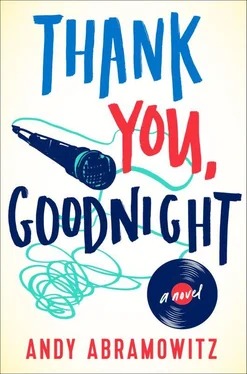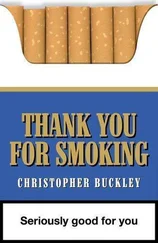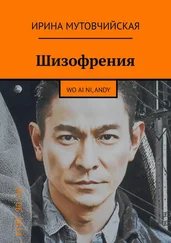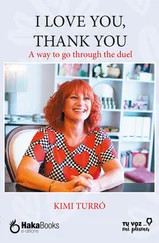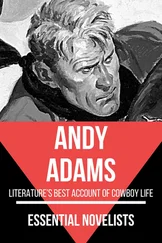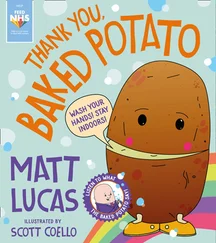11. Why do you think Teddy never confesses to his bandmates that it was his ego and feelings for Mackenzie that kept Tremble from touring with Junction in the nineties? Do you think he’s able to fully reconcile with his past while keeping that to himself? Why or why not?
12. What effect does the epilogue have on Teddy’s journey? Were you surprised at the novel’s conclusion and Teddy’s final legacy? Did you find yourself disappointed or satisfied with the direction he chose for his life?
A CONVERSATION WITH ANDY ABRAMOWITZ
How did you come to write this novel? What inspired you?
The idea for this book came to me while I was actually visiting the Tate Modern in London and I came across a photography exhibit. The people in the photos appeared to be unwitting participants in the artist’s work; they didn’t seem to know their picture was being taken. I began to imagine what it would be like to happen upon a photograph of myself hanging in a museum or art gallery and, depending on what I saw reflected in that shot, how it might affect me. I envisioned the chain of events that an experience like that might set in motion—coming face to face with a depiction of how the world perceives me, and then resolving to do something about it, to change that perception. An ordinary person with an extraordinary past seemed like the right type of character to follow on such a journey.
Are there any autobiographical components in the novel? Are any of the characters or events inspired by real life?
I certainly wish Thank You, Goodnight were more memoir than fiction, but alas, no. I have a very satisfying but thoroughly unceremonious past in music. I played in bands, performed in many different venues, and even recorded an album, but whereas Teddy Tremble is a one-hit wonder, I’m a no-hit wonder. I was, however, able to draw upon the experience of recording and of lugging equipment in and out of fraternity houses and bars in order to construct some of the scenes in the book. The guitar player in the band I played in was and is a stellar musician, a great friend, and an all-around terrific person. He’s nothing like Jumbo Jett.
As Teddy is drawn back into his music, he can’t get the melody and lyrics out of his head that will turn into “Whereabouts,” his first original song in ten years. How does a song that wants to be written compare with starting a novel? Was there a character, or scene, or voice, that originally drew you into this novel?
In my experience, a song that wants to be written can be written, sometimes fairly quickly. The time investment could be an afternoon or it could be a half-hour, though it can take months to fully realize a song. A novel is much more of a commitment and requires more thought and planning at the outset. Unlike a song, a novel has to connect—at least on some level—to reality or I think the reader will [grow] weary of it fairly quickly. As the novelist, you have to live with your characters for a much longer period of time, you have to continue to return to them, and you have to take them places.
Two things drew me into writing Thank You, Goodnight . First, there was the Teddy character, a person who’d accomplished something great a long time ago and then had to adjust to life as a regular guy. Second, there was the scene in Switzerland. I knew that Teddy would never have set out on his journey to put the band back together and restore his “legacy” had he not run headlong into this little pocket of rabid fans with which he was forced to share an evening. For some reason, this scenario played out in my head before any of the rest of the novel materialized, and it served as a great starting place for writing the rest of the novel.
The scenes when Teddy and the band are recording in the studio and working with Sonny to make a record together are incredibly detailed. Did you do any research into the music industry and recording process, or were those scenes based on personal experience?
I am fortunate enough to have done some recording. A guy I played in bands with for many years—who happens to be a very close friend—and I spent three weeks in San Francisco making an album when we were in our mid-twenties. In addition to being a total blast, the experience made a huge impression and provided a wealth of detail, such as how the placement of instruments and microphones affects the sound, the way the producer looks while sitting in front of the mixing board, the long stretches of tedium as another musician lays down his or her tracks, the rises and falls of everyone’s moods over the course of a long day. It’s a unique environment, and not always conducive to creativity.
Thank You, Goodnight is your first novel: what about the writing or editing process did you find surprising? What did you find challenging?
I was surprised that the editing process never felt done. I was ultimately able to get the narrative in a place that felt comfortable and complete, but with every read-through, there were words and sentences on nearly every page that I felt compelled to revise.
In terms of challenges, a major one for me was keeping the dialogue both fresh and realistic. Most conversations that we engage in on a daily basis are very ordinary and unfold in relatively short phrases that are not terribly poetic or even articulate. A lot of the scenes in this book entail two people simply having a conversation, as Teddy visits all his old co-conspirators to pitch the idea of reforming Tremble. It was a challenge to make the dialogue interesting and alive, while at the same time believable.
Are there authors or books that have particularly influenced or inspired your writing style?
I’ve always aspired to write like Tom Robbins, but it’s dangerous to try to emulate that kind of writing style because it’s so easy to fail—and so apparent when you do. I’ve been greatly inspired by Dave Eggers and the way he tells stories, particularly You Shall Know Our Velocity and recently with the understated but very compelling A Hologram for the King . I also sometimes find myself trying to allow scenes to unfold in the very natural, organic way that I associate with Jhumpa Lahiri’s writing. And Almost Famous by David Small, with whom I was fortunate enough to take a writing workshop as an undergraduate at Franklin and Marshall, is a great example of well-crafted character-driven fiction. Those are but a few of many influences.
Teddy explains that first impressions with a song are paramount. “A maiden voyage through a song is like a first date, painting it with visual imagery that becomes forever inseparable from the music.” Do you share this romantic notion about how we experience music? What songs have made a successful “first date” impression on you?
I have absolutely found this to be true. If I first hear a song while coasting along a scenic highway at dusk or while sitting on the beach at midnight, it’s going to be easier to like. If I first hear it on a rainy day in the parking lot of a mall, that song has a lot of drab stimuli to overcome. I first heard “Pink Moon” by Nick Drake while walking along a deserted city street in the middle of a snowstorm, and every time I hear the opening strum of that acoustic guitar, I’m back in that peaceful wintry scene. I first heard Joni Mitchell’s “Court and Spark” while lounging around my apartment with my then-girlfriend (now wife) on a Friday night, so that musical first date went very well. I have hundreds of examples.
The act of making or experiencing visual art is very powerful or even pivotal at several times in the novel, such as Teddy’s experience with Heinz-Peter and his exhibit at the Tate, Sara’s therapeutic creation of mosaics, and the great impact that the Trans Am with Electric Eel painting has on Teddy. How is art important in your own life? Why did you want to include these other media in addition to the art of creating music in the novel?
Читать дальше
